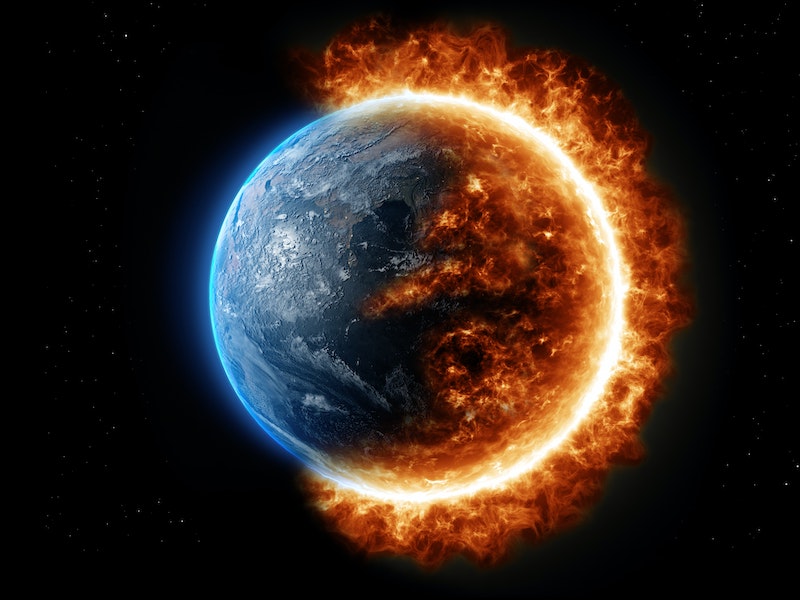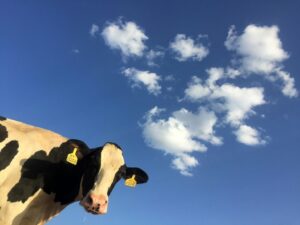Redesigning societies around sustainable principles will be a painful yet rewarding process
There’s a narrative that the climate crisis will lead us down one of two pathways. The road towards sustainability, where a radical social transformation is triggered so that each person’s needs are met within environmental limits. Or, the road towards armageddon — where we continue full steam ahead with business of usual, which leads to some apocalyptic end-of-the-world scenario where everyone dies. It’s a crude narrative that wouldn’t be out of place in a budget sci-fi film. The reality is somewhere in the middle — moving towards sustainability is going to require a level of chaos and social unrest. So why is this?
Currently, sustainability initiatives are defined by incremental tweaks to how we do things. It’s still very much business as usual, but with companies working to provide an illusion of change. There is no desire to question underlying beliefs, ideologies, or business models because doing so would shake up the status quo. The rich establishment has little interest in doing that when it would place their power and influence at risk.
This lack of desire to transform society, means emissions continue to increase, wastes continue to accumulate, and biodiversity continues to be destroyed. In short, we’re perpetuating the problem because the underlying behaviour driving the problem continues to go unquestioned.
On top of this, sustainability initiatives tend to be dominated by a western narrative. In the West, the problem revolves around emissions; the solution is to decarbonise economies by achieving net zero by 2050. The idea is that we’ll be able to decouple all of the unwanted emissions from the economy, enabling us to maintain the same high living standards while reducing environmental impacts. This narrative tends to ignore the fact that we can’t have a sustainable society without providing for each person’s fundamental needs.
The fact that in 2015 there were 700 million people living in extreme poverty (defined as someone earning below $1.90 each day) tells you how far away we are from that goal. In contrast, in its Global Wealth Report for 2021, Credit Suisse estimated the richest 1% (comprising the richest 56 million adults) own nearly 46% of human wealth. The problem at the heart of the economy seems obvious — the benefits are being filtered to the 1%. Increasing inequality isn’t even questioned, let alone actually doing something about distributing wealth more effectively.
Rather than questioning a system which produces a tiny proportion of winners and a massive army of losers, the mass media celebrates inequality by idolising the rich. Understandable, given the mass media is largely owned by billionaires. Clearly, they have little desire to give up their wealth and influence, because, funnily enough, they aren’t driven by some altruistic desire to benefit society, but to increase their wealth further at the detriment of everyone else.
The other side of the narrative — armageddon — is just as ridiculous a notion as believing the system creating the problem will magically transform society onto a sustainable path. We’re not just going to go from a time where everything is ok to one where suddenly balls of fire are hurtling towards the Earth; that’s not how the climate works. The climate is changing slowly, which is one of the major reasons why it’s easy for the status quo to justify business as usual.
What the climate crisis will create are far more aggressive weather extremes. Those weather extremes will translate into a host of interconnected social crises. Once one occurs, it could trigger a domino effect. An example is that as the century progresses, the risk of mass global droughts increases. Global droughts will lead to crop failures that will translate into food shortages. Water scarcity will accompany those droughts, leading to many regions of the world becoming inhospitable.
Water scarcity and food shortages are two factors that will contribute to an estimated billion climate refugees by 2050 — or one in ten people living at that time. Food shortages could lead to a breakdown of cooperation in the free market as countries that usually export food become increasingly isolationist in efforts to support the needs of their own citizens. A breakdown of cooperation could lead to economic shocks and spiralling inflation, with standards of living reducing dramatically.
When you combine the impacts of environmental changes, they are set to increase “the level of stress within national and international society, thus increasing the likelihood of many different kinds of conflict and impeding the development of cooperative solutions.” In a world of scarcity, the risk of war, including nuclear war, will increase as countries seek to gain control of critical resources. Ultimately environmental changes could “cause the gradual impoverishment of societies…which could aggravate class and ethnic cleavages, undermine liberal regimes, and spawn insurgencies.”
In conditions where it becomes increasingly difficult for governments to meet the needs of citizens, radicalisation and calls for systems change will become ever louder. Instability, mass civil unrest, and the breakdown of law and order will create conditions that are ripe for revolution and could provide the environmental movement with the opportunity to lead an uprising. Should one revolution succeed, it could trigger an ideological earthquake that reverberates worldwide and inspires other movements to overthrow governments that will be graphically shown to be unfit for purpose.
We have the ideas, technology and know-how to restore ecosystems and develop societies that work in symbiosis with nature. There is also an army of highly motivated, driven environmentalists who are fiercely determined to create a sustainable society. But it’s when the climate crisis feels like a crisis that social breakdown will create the conditions that are necessary to redesign sustainable societies from the ground up. We’re hurtling into a world of uncertainty, instability and darkness, but that’s now exactly what’s needed for a new dawn to break through — only then will we have the opportunity to design sustainable societies that work for us and the natural world, rather than for the tiny minority that controls the levers of power.



